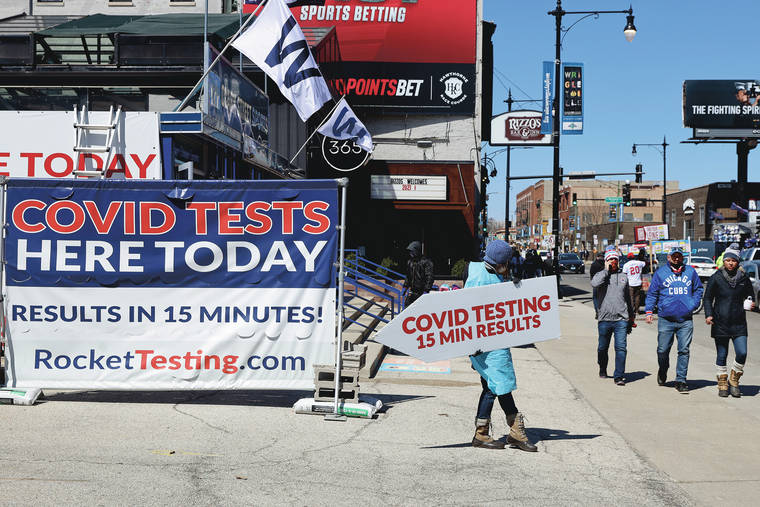WASHINGTON — Federal health officials’ new, more relaxed recommendations on masks have all but eclipsed another major change in guidance from the government: Fully vaccinated Americans can largely skip getting tested for the coronavirus.
The Centers for Disease Control and Prevention said last week that most people who have received the full course of shots and have no COVID-19 symptoms don’t need to be screened for the virus, even if exposed to someone infected.
The change represents a new phase in the epidemic after nearly a year in which testing was the primary weapon against the virus. Vaccines are now central to the response and have driven down hospitalizations and deaths dramatically.
Experts say the CDC guidance reflects a new reality in which nearly half of Americans have received at least one shot and close to 40% are fully vaccinated.
“At this point we really should be asking ourselves whether the benefits of testing outweigh the costs — which are lots of disruptions, lots of confusion and very little clinical or public health benefit,” said Dr. A. David Paltiel of Yale’s School of Public Health, who championed widespread testing at colleges last year.
While vaccinated people can still catch the virus, they face little risk of serious illness from it. And positive test results can lead to what many experts now say are unnecessary worry and interruptions at work, home and school, such as quarantines and shutdowns.
Other health specialists say the CDC’s abrupt changes on the need for masks and testing have sent the message that COVID-19 is no longer a major threat, even as the U.S. reports daily case counts of nearly 30,000.
“The average Joe Public is interpreting what the CDC is saying as ‘This is done. It’s over,’” said Dr. Michael Mina of Harvard University, a leading advocate of widespread, rapid testing.
With more than 60% of Americans not fully vaccinated, he thinks screening of those without symptoms still has a role, particularly among front-line workers who have to deal with the public.
CDC Director Dr. Rochelle Walensky said the updated guidelines are based on studies showing the robust effectiveness of the vaccine in preventing disease in various age groups and settings. Even when vaccinated people do contract COVID-19, their infections tend to be milder, shorter and less likely to spread to others.
As a result, the CDC says vaccinated people can generally be excluded from routine workplace screening for COVID-19.
That change could eliminate testing headaches like the one recently reported by the New York Yankees, when one player and several staffers tested positive on a highly sensitive COVID-19 test, despite being vaccinated.
Baseball officials are discussing whether to drop or reduce testing of people who have no symptoms.
But widespread attempts to waive testing for vaccinated people could face the same dilemma seen with the CDC’s new guidelines on masks: There’s no easy way to determine who has been vaccinated and who hasn’t.
Employers can legally require vaccinations for most workers, though few have tested that power, since the vaccines don’t yet have full regulatory approval. Even asking employees to disclose their vaccination status is viewed as intrusive by many employment-law specialists.
For now, testing appears to be continuing unchanged in places that adopted the practice, from offices to meatpacking plants to sports teams.
Pork producer Smithfield Foods said it continues to conduct a combination of mandatory and optional testing for employees, depending on conditions at work sites. Amazon said it will still offer regular, voluntary testing.



